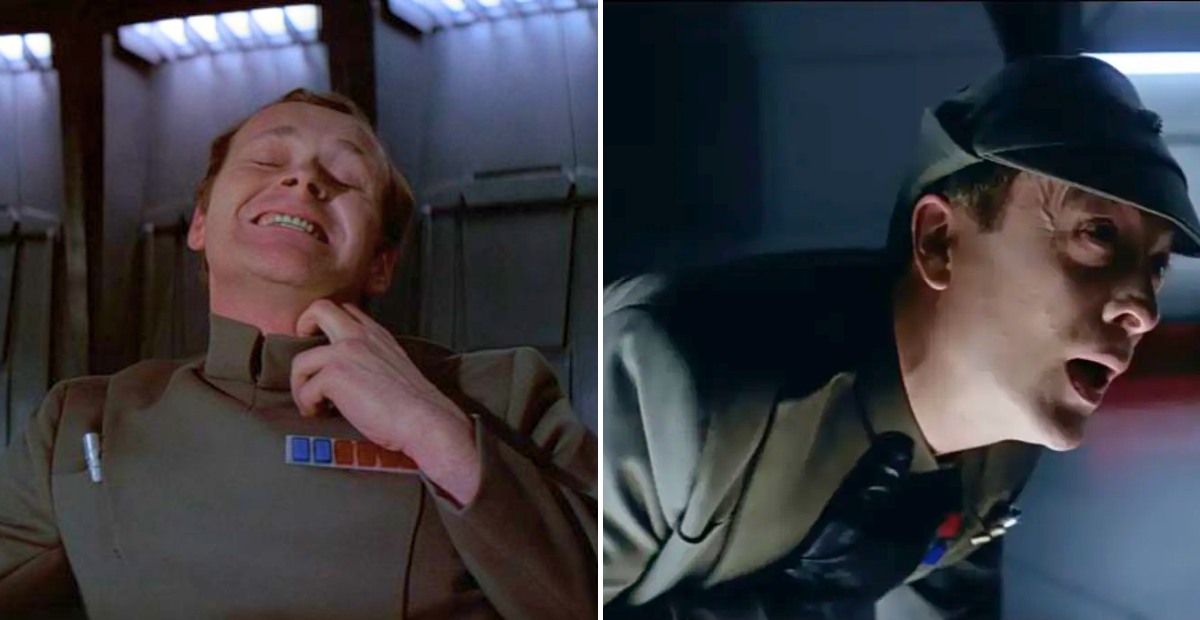When you go back and rewatch the Original Trilogy, one thing really stands out. In A New Hope, Imperial officers don’t seem too worried about Darth Vader. Some even roll their eyes at his “sorcerer’s ways.” But by the time we get to The Empire Strikes Back and Return of the Jedi, the mood is completely different. Nobody mocks him. Nobody interrupts him. Every officer looks like they’re one mistake away from disaster.
So what happened in between? Why did the tone shift from open mockery to complete fear?
Comic Explains (Early Empire): Who Is This Guy?
When Vader first showed up in the Imperial ranks, nobody really knew who he was. He hadn’t worked his way up through the military like everyone else. No medals, no titles, no history in the chain of command. He just appeared at the Emperor’s side, dressed in black armor and carrying a lightsaber, speaking with the Emperor’s authority.
That kind of arrival didn’t sit well with officers who had fought in the Clone Wars and spent years building their careers. Many whispered that he was only a weapon or bodyguard. Some didn’t stop there. Assassination attempts were made against him, and contracts to kill him even came from high up inside the Imperial executive building. Vader confronted Palpatine about it, and the Emperor made the situation very clear: “If I wanted you dead, I would not require such indirect methods.”
The Emperor then staged a meeting with the top military leaders. He told them directly: “This is Lord Vader. He speaks with my voice. A command from him is a command from me.” That announcement erased any question about Vader’s authority.
And to drive the point home, Vader force-choked five officers chosen at random in front of everyone. His message was simple: he would always survive, but they might not. From that moment, nobody could doubt where he stood. You can read the full story about How the Empire Reacted to Darth Vader’s First Appearance.
Why Mocking Happened In A New Hope
On the Death Star, the chain of command worked differently. Grand Moff Tarkin was in charge, not Vader. Tarkin gave the orders, and the military leaders present, like Admiral Motti and General Tagge, served under him. In that environment, Motti dared to scoff at Vader’s “sorcerer’s ways,” claiming the Death Star was the ultimate power in the universe.
Vader responded by choking him, but even then Tarkin ordered Vader to release him, and Vader obeyed. That shows clearly how much authority Tarkin carried over the battle station. The officers mocking Vader were not reckless; they knew Tarkin’s presence gave them protection.
Everything Changed After Yavin
When the first Death Star was destroyed, the situation turned upside down. Tarkin died, along with over a million Imperial personnel. Vader was the only major figure who survived. The loss was devastating, and the man who walked away from it gained a terrifying reputation.
This moment also proved something Vader had been saying all along: the Death Star was nothing compared to the power of the Force. Back on the station, he warned officers that putting too much faith in a giant battle station was foolish, and when Luke Skywalker destroyed it with a single shot guided by the Force, Vader was proven right.
In fact, sources even show that Vader smiled—behind the mask—for the first time in years after the Death Star’s destruction. He hated the project, the wasted resources, and the arrogance it represented. Watching it all vanish in an instant only reminded him that true power wasn’t in weapons or superlasers, but in the Force itself. You can read the full story here: When Darth Vader Smiled Again.
The Way He Stated His Power Again In ESB And ROTJ
By the time of The Empire Strikes Back, Vader commanded the Executor and Death Squadron. He wasn’t just the Emperor’s enforcer anymore.
His style of leadership left no room for mistakes. When Admiral Ozzel came out of hyperspace too close to Hoth and tipped off the Rebels, Vader killed him instantly and promoted Piett right there on the bridge. Later, Captain Needa died for losing the Millennium Falcon. Officers saw what happened when anyone failed. Failure meant death.
That’s why the officers around him in Episodes V and VI look terrified. They speak quickly, carefully, and never once dismiss him. The conference room atmosphere of Episode IV never returned.
Another factor was Vader’s focus on Luke Skywalker. By The Empire Strikes Back, Vader knew he had a son. He didn’t want anything slowing him down or putting the mission at risk. His obsession with finding Luke only made him harsher with the officers under him. If anyone jeopardized that pursuit, he had no hesitation in eliminating them.

